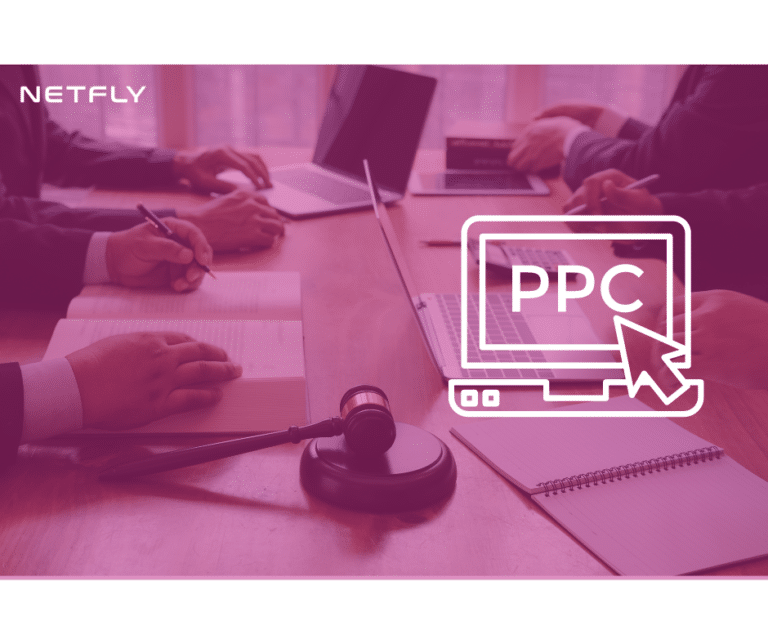Effective digital marketing for attorneys starts with optimizing their websites for user experience and search engine rankings. By incorporating intuitive design, clear calls to action, and ensuring fast load speeds, attorneys can greatly enhance their online presence. Additionally, engaging on social media platforms and crafting high-quality content allows attorneys to showcase their expertise and build stronger client relationships. Leveraging email campaigns further aids in maintaining client engagement and driving business growth. But how can attorneys measure the true impact of these strategies and make necessary adjustments? The answer lies in a systematic approach to monitoring and refining key performance metrics.
Key Takeaways
- Optimize your website for speed, mobile use, and intuitive navigation to improve user experience and engagement.
- Conduct keyword research and integrate high-volume keywords into your on-page SEO to enhance search engine visibility.
- Engage with your audience on social media by sharing valuable insights and fostering a dialogue to build trust and authority.
- Create high-quality, varied content that demonstrates your expertise and addresses common legal questions to attract and retain clients.
- Segment your email list and deliver personalized, insightful messages to nurture relationships and encourage client engagement.
Optimize Your Website
To effectively attract and retain clients, attorneys must guarantee that their websites are optimized for both user experience and search engine visibility. A website’s design and functionality can have a substantial impact on a potential client’s first impression. Hence, it is crucial for attorneys to prioritize user experience by making certain that their site is intuitive, easy to navigate, and aesthetically pleasing. A clutter-free layout with clear calls to action will facilitate seamless visitor interactions, encouraging potential clients to engage further.
Mobile optimization is another critical aspect of website optimization that attorneys cannot afford to overlook. With an increasing number of users accessing websites via smartphones and tablets, a mobile-friendly site is non-negotiable. Responsive design ensures that the website adapts to various screen sizes, providing an excellent viewing experience across all devices. This not only enhances user experience but also contributes to longer site visits and lower bounce rates.
Attorneys should also focus on fast load times. A slow website can frustrate users and drive them away, potentially costing valuable leads. Compressing images, leveraging browser caching, and minimizing HTTP requests are strategic measures to improve site speed.
Furthermore, intuitive site architecture is essential for both users and search engines. Logical categorization of content and the use of breadcrumbs can help visitors find the information they need quickly, while also aiding search engines in indexing the site efficiently.
Utilize SEO Techniques
Attorneys aiming to boost their online presence should strategically employ SEO techniques to rank higher in search engine results and attract more potential clients. One of the foundational elements of effective SEO is thorough keyword research. By identifying and targeting the specific terms potential clients use when searching for legal services, attorneys can tailor their content to meet these search queries. Tools like Google Keyword Planner can assist in uncovering high-volume keywords that are relevant to the legal industry. Integrating these keywords naturally into website content, meta descriptions, and title tags can greatly enhance search engine visibility.
Another important aspect is the development of a robust backlink strategy. Backlinks, or inbound links from other reputable websites, signal to search engines that the attorney’s website is a credible source of information. This can significantly improve search rankings. Attorneys can generate backlinks by publishing high-quality, informative content that other sites will want to link to. Guest blogging on reputable legal websites, participating in online legal forums, and obtaining listings in legal directories are all effective methods for acquiring valuable backlinks.
Additionally, attorneys should focus on on-page SEO elements. This includes optimizing page load speeds, ensuring mobile-friendliness, and creating user-friendly navigation. Search engines prioritize websites that deliver a positive user experience, so these technical aspects cannot be underestimated.
Engage on Social Media
Building on the foundation of strong SEO practices, engaging on social media platforms can further amplify an attorney’s online presence and connect directly with potential clients. Social media offers a dynamic space for showcasing an attorney’s expertise, fostering client interaction, and humanizing the brand. By maintaining an active presence on platforms like LinkedIn, Twitter, and Facebook, attorneys can share insights, legal updates, and success stories, positioning themselves as thought leaders in their field.
Effective social media engagement begins with a strategic approach. Attorneys should identify which platforms their target audience frequents and tailor their content accordingly. LinkedIn is ideal for professional networking and sharing in-depth articles, while Twitter is effective for real-time updates and quick tips. Facebook allows for a more personal touch, offering a space to share client testimonials and community involvement.
Client interaction on social media shouldn’t be overlooked. Promptly responding to comments and messages demonstrates attentiveness and builds trust. Regularly participating in relevant discussions and groups can also enhance visibility and credibility. Attorneys should aim to create a dialogue, not just a monologue, with their audience.
Moreover, social media is a powerful tool for showcasing brand personality. By sharing behind-the-scenes glimpses of their practice, participating in community events, and highlighting their values and mission, attorneys can create a relatable and authentic image. This not only attracts potential clients but also fosters loyalty among existing ones.
Implement Content Marketing
Implementing content marketing allows attorneys to demonstrate their expertise and provide valuable information that can attract and retain clients. By creating and distributing high-quality content, attorneys can establish themselves as thought leaders in their field. This not only builds credibility but also helps potential clients understand the complexities of legal issues they may be facing.
A strategic approach to content marketing involves various tactics, including guest blogging. Attorneys should consider writing guest posts for reputable legal websites or industry-specific blogs. Guest blogging can greatly expand an attorney’s reach, exposing their knowledge to a broader audience. It also provides valuable backlinks to the attorney’s own website, improving search engine rankings.
Another essential element of content marketing is client testimonials. Prospective clients often seek reassurance through the experiences of others. By showcasing positive client testimonials on their website and social media platforms, attorneys can build trust and demonstrate their success in handling cases similar to those faced by potential clients. Testimonials should be detailed, specific, and highlight the attorney’s professionalism, communication skills, and case outcomes.
Attorneys should also focus on creating a variety of content types to cater to different audience preferences. This might include blog posts, informative articles, videos, infographics, and even podcasts. Each piece of content should address common legal questions, offer solutions, and provide actionable advice.
Leverage Email Campaigns
Leveraging email campaigns offers attorneys a direct and personalized way to engage with potential and existing clients, nurturing relationships and driving conversions. Email marketing, when done right, can be a powerful tool in an attorney’s digital arsenal. The key to success lies in precise client segmentation and delivering personalized messaging that resonates with each recipient.
Client segmentation is the foundation of effective email campaigns. By categorizing clients based on criteria such as case type, geographic location, or engagement level, attorneys can tailor their communications to meet the specific needs and interests of each segment. This targeted approach guarantees that the content is relevant, increasing the likelihood of engagement and response.
Personalized messaging takes the segmentation strategy a step further. It’s not enough to simply address clients by name; the content must provide value and relevance. Attorneys should craft emails that address the unique concerns of each client segment, offering insights, updates, and solutions tailored to their specific situations. For instance, an email to clients dealing with family law issues might include tips on handling custody arrangements, while a message to business law clients could highlight recent changes in corporate regulations.
An effective email campaign doesn’t just involve sending periodic newsletters. It requires a strategic approach, with clear calls-to-action that guide recipients toward desired outcomes, such as scheduling a consultation or downloading a legal guide. Tracking and analyzing the performance of these emails through metrics like open rates and click-through rates will provide valuable insights, enabling attorneys to refine their strategies and improve results over time.
Frequently Asked Questions
How Can Attorneys Measure the ROI of Their Digital Marketing Efforts?
Attorneys can measure the ROI of their digital marketing efforts by tracking lead generation metrics and client retention rates, using analytics tools to assess conversion rates, and calculating the revenue generated from new and returning clients.
What Digital Marketing Tools Are Essential for Law Firms?
When considering essential digital marketing tools for law firms, one must prioritize social media for broad reach and engagement, alongside email campaigns for personalized client interactions. These tools strategically enhance visibility and foster client relationships.
How Should Attorneys Handle Negative Online Reviews?
Attorneys should handle negative online reviews by prioritizing client communication and employing strategic response strategies. They should address concerns professionally, demonstrate empathy, and offer solutions, turning a negative situation into an opportunity to build trust.
What’s the Importance of Mobile Optimization for Law Firm Websites?
Mobile optimization is essential for law firm websites due to the increasing number of mobile users. It guarantees a smooth user experience and improves page speed, which directly affects client retention and search engine rankings.
Can Digital Marketing Help in Managing a Law Firm’s Reputation?
Digital marketing can manage a law firm’s reputation by leveraging client testimonials and social proof. By showcasing positive feedback and credible endorsements, a firm builds trust, enhances credibility, and strategically positions itself as a reliable legal service provider.
Conclusion
To sum up, by optimizing their websites, utilizing SEO techniques, engaging on social media, implementing content marketing, and leveraging email campaigns, attorneys can greatly enhance their digital presence. These strategic actions not only help in showcasing their expertise but also in building stronger client relationships and driving business growth. Monitoring key performance metrics guarantees continuous improvement and maximizes the effectiveness of these efforts, making it essential for attorneys to embrace thorough digital marketing strategies.










